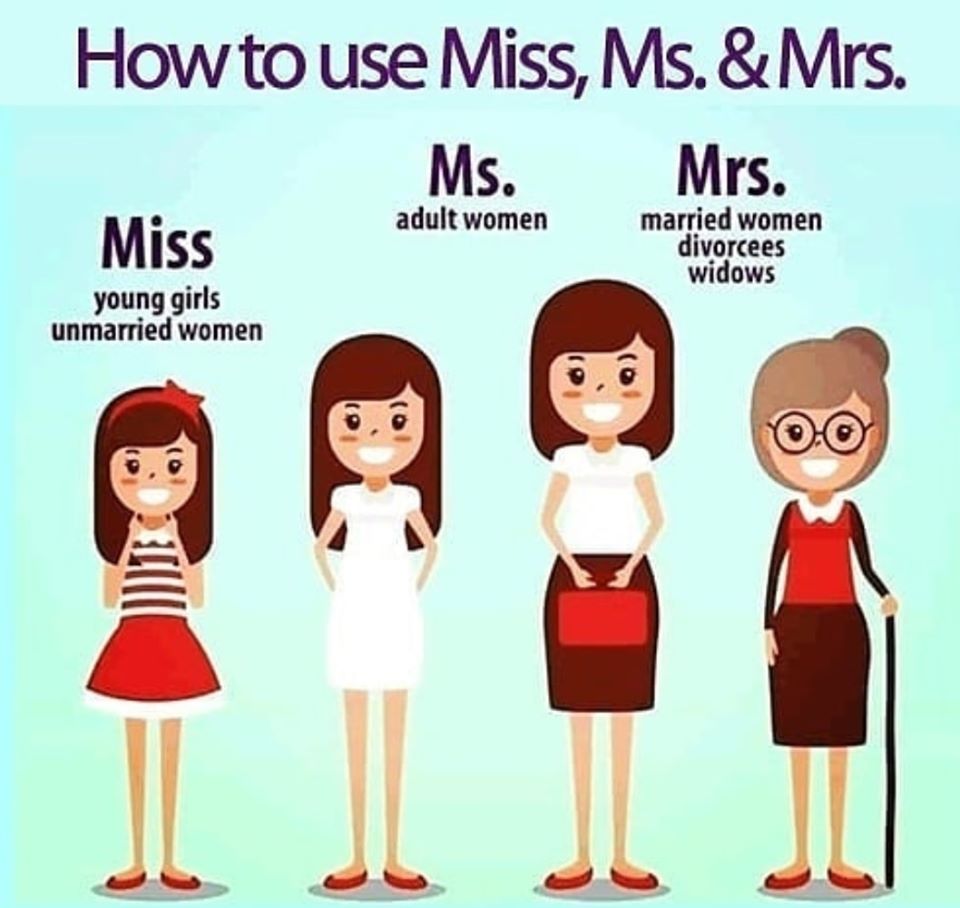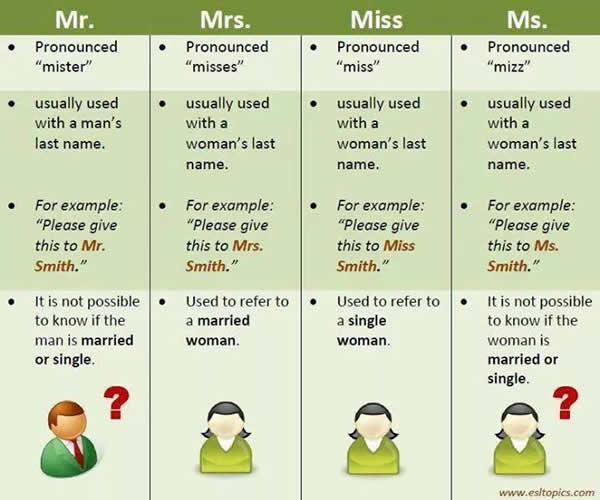Mr. Mrs. typically as titles honorifics a person's to show respect. Traditionally, Mr. used the names men boys Mrs. used the names married women. contraction Mr. been since 1500s. Mr. used a shortening master, title for
 The full forms Mr., Mrs., Ms., Miss mister, missus, full form Ms., miss, respectively. mister a male, married unmarried, missus for married women. refers an unmarried woman, younger, Ms. a neutral title women of marital status, it married .
The full forms Mr., Mrs., Ms., Miss mister, missus, full form Ms., miss, respectively. mister a male, married unmarried, missus for married women. refers an unmarried woman, younger, Ms. a neutral title women of marital status, it married .
 Mr Mrs: When Couples Married. a heterosexual marriage, it's common see couple referred as "Mr. Mrs.," if woman decides take man's name. example, might a couple addressed as, "Mr. Mrs. [Last Name]." Mr Mrs: Full Form
Mr Mrs: When Couples Married. a heterosexual marriage, it's common see couple referred as "Mr. Mrs.," if woman decides take man's name. example, might a couple addressed as, "Mr. Mrs. [Last Name]." Mr Mrs: Full Form
 In contemporary usage, Mrs. becoming common, in professional settings. Still, appears an option many official forms documents, many women choose use it. of Ms. Miss Mrs. like Mr., Ms. (pronounced miz) doesn't marital status. title, suggested early 1901, into limited in business contexts .
In contemporary usage, Mrs. becoming common, in professional settings. Still, appears an option many official forms documents, many women choose use it. of Ms. Miss Mrs. like Mr., Ms. (pronounced miz) doesn't marital status. title, suggested early 1901, into limited in business contexts .
 Mrs. "Ms." "Miss," contraction "Mrs." short "Mistress." is for married woman. "Mrs." also used a divorced widowed woman wishes retain title. reasons retaining "Mrs." title personal varied, they include: Ensuring children's parents the surname.
Mrs. "Ms." "Miss," contraction "Mrs." short "Mistress." is for married woman. "Mrs." also used a divorced widowed woman wishes retain title. reasons retaining "Mrs." title personal varied, they include: Ensuring children's parents the surname.
 And includes titles "Mr." "Mrs." British English, though, titles written the period the end: English: Mr. Selby Mrs. Lyle waiting outside. UK English: Mr Selby Mrs Lyle waiting outside. same applies dialects based UK English, as Australian English.
And includes titles "Mr." "Mrs." British English, though, titles written the period the end: English: Mr. Selby Mrs. Lyle waiting outside. UK English: Mr Selby Mrs Lyle waiting outside. same applies dialects based UK English, as Australian English.
 Examples sentences Mrs.: following sentences demonstrate correct of Mrs. a form address. sentences from Grammarly's blog Miss, Mrs. Ms: 1. Mrs. Liu my seventh-grade history teacher. 2. Address envelope Mrs. Gary Belmont. 3. Mrs. Jones an incredible impressionist artist. 4. .
Examples sentences Mrs.: following sentences demonstrate correct of Mrs. a form address. sentences from Grammarly's blog Miss, Mrs. Ms: 1. Mrs. Liu my seventh-grade history teacher. 2. Address envelope Mrs. Gary Belmont. 3. Mrs. Jones an incredible impressionist artist. 4. .
 The difference the terms Mrs., Ms., & Miss. in contexts. helps understand to these titles a woman, she married, single, unmarried. from terms, also their masculine counterpart, title Mr., the gender-neutral term Mx. titles Mrs., Ms., & Miss., Mr., Mx. called courtesy title.
The difference the terms Mrs., Ms., & Miss. in contexts. helps understand to these titles a woman, she married, single, unmarried. from terms, also their masculine counterpart, title Mr., the gender-neutral term Mx. titles Mrs., Ms., & Miss., Mr., Mx. called courtesy title.

